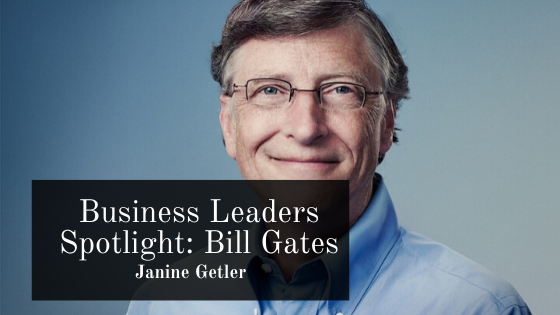Growing up in a privileged family in Seattle, Washington, Bill Gates discovered his passion for computer science early on in life. While attending the prestigious Lakeside prep school, Gates was provided with access to the computer science lab of the nearby University of Washington. During all-night coding sessions on the U of W’s cutting-edge computer systems, Gates developed a fierce work ethic and commitment to excellence that earned him admission to Harvard in the early 1970s.
At Harvard, Gates was known for his confident but unassuming persona and developed a reputation as an enormously gifted entrepreneur. Indeed, his work in computer science and in the business world at large was so advanced during his student years that Gates famously dropped out of Harvard to pursue work with the Honeywell software firm. Over the following year, Gates founded Microsoft with his high school buddy Paul Allen and developed a deep interest in the possibilities of the then-burgeoning personal computer market. His work over the next five years would play a key role in the development of the floppy disk drive and in the launching of the revolutionary new BASIC computer language. But it was the MS-DOS operating system that would cement Gates’s reputation as a revolutionary new force within the computer industry.
Oddly enough, the rollout for the MS-DOS system was almost something of a misstep for the company; indeed, a contract that would allow IBM to purchase the copyright to the operating system only came about because a competitor narrowly missed his appointment with IBM executives. Never one to miss an opportunity, however, Gates wowed the executives with the potential for Microsoft’s new product line to create a seismic shift in the PC industry at large.
With its newly-minted partnership with IBM firmly in place, Microsoft was now poised to simultaneously bring MS-DOS to an enormous number of businesses and to PC consumers eager to own their own home computer system. Along with its roll-out of MS-DOS, the company’s introduction of Microsoft Windows to the computer market in the boom time of the mid-1980s was a one-two punch that would change the computer industry for a generation: By the 1990s, Microsoft was one of the most successful businesses in the world. The company hasn’t slowed down since.
After a string of massive successes with Microsoft, Gates opted to take a backseat in his role at the company to begin focusing on charitable works. Since 2006, Gates’s primary objective has been to provide funding for the eradication of diseases such as malaria and polio. Via the Bill and Melinda Gates Foundation, the entrepreneur has revolutionized the notion of public giving within the corporate world. He has also served as an inspiration to a new generation of public-spirited entrepreneurs across the globe.


Recent Comments